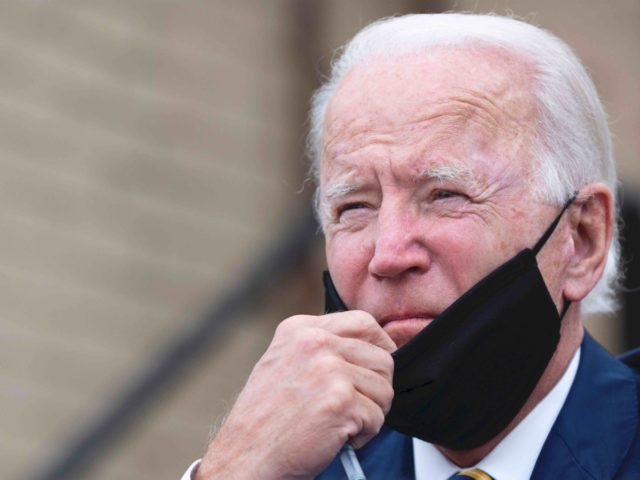A cadre of Senate Democrats are already in talks to abolish the filibuster, provided former Vice President Joe Biden wins the November general election and their party secures a majority in the chamber.
Sen. Jeff Merkley (D-OR), a progressive stalwart long in favor of scrapping the filibuster, has approached colleagues in recent days to gauge support for the action. Although no definitive proposal has been agreed upon, Merkely has found a number of lawmakers partial to either discarding the filibuster outright or reforming it in some manner.
“I just heard they started talking and I’m interested in listening to anything because the place isn’t working. I just heard about it this morning,” Sen. Joe Manchin (D-WV) told the Hill.
Manchin, a moderate-to-conservative Democrat, had prior opposed attempts by his more progressive colleagues to scrap the filibuster. Most notably, the West Virginia lawmaker was one of only three Democrats to vote against a 2013 measure weakening the filibuster for judicial appointments. Manchin’s openness now, however, seems to reflect the shift taking place among Democrats.
The filibuster, which is unique to the Senate because of its longstanding tradition of allowing unlimited debate, has been something of a divisive issue for the party in recent years.
Progressives, including Biden’s one-time rival Sen. Elizabeth Warren (D-MA), argue the filibuster is undemocratic as it allows a minority of lawmakers—at times even only one lawmaker—to hold up legislation favored by a majority of the Senate’s members. The rule requires that a three-fifths supermajority, usually 60 votes, is needed to end debate on a bill under consideration. Since neither party has been able to control that many seats in recent years, this has ensured that any bill without broad bipartisan support could be neutralized by the threat of a filibuster.
Generally, progressives have favored scrapping the rule in order to advance their position on controversial causes, such as gun control or abortion. Moderates, on the other hand, have defended the filibuster, with some such as Manchin previously claiming the limitation it imposed on majority rule was the “entire premise of the Senate” in the first place.
Now, though, the calculus among Senate Democrats seems to be changing. With polls showing Biden beating President Donald Trump in a landslide, and his coattails potentially carrying Democrats into the Senate majority, some worry the 60-vote threshold required to pass legislation could stymie the new administration’s political agenda.
Such concerns were vocalized last week when Sen. Chris Coons (D-DE), another Senate moderate, told Politico he would be open to scrapping the filibuster if Biden won and the tactic was used to block his legislative priorities.
“I will not stand idly by for four years and watch the Biden administration’s initiatives blocked at every turn,” Coons told the outlet. Adding that he was going to “try really hard to find a path forward that doesn’t require removing what’s left of the structural guardrails, but if there’s a Biden administration, it will be “inheriting a mess” requiring “urgent and effective action.”
The Delaware lawmaker’s admission drew notice not only because he, like Manchin, had once opposed doing away with the filibuster, but also because of his close ties to Biden. Long seen as the former vice president’s top ally on Capitol Hill, Coons holds the Senate seat that Biden, himself, occupied for nearly 40-years. Since Biden announced his 2020 run, the senator has jumped into the role of campaign surrogate both in swing states across the country and the halls of congress. There is even speculation that if Biden was to win in November, Coons would have the inside track to be secretary of state.
As such, Coon’s newfound openness to ending the filibuster has raised questions whether his comments were in-line with Biden’s own stance. Officially, the former vice president is on record with opposing efforts to scrap the filibuster, telling Vox in February that he did “not support ending” the rule. Biden, for his part, has not addressed Coons’ comments publicly or intimated if his own thinking on the issue has changed.

COMMENTS
Please let us know if you're having issues with commenting.